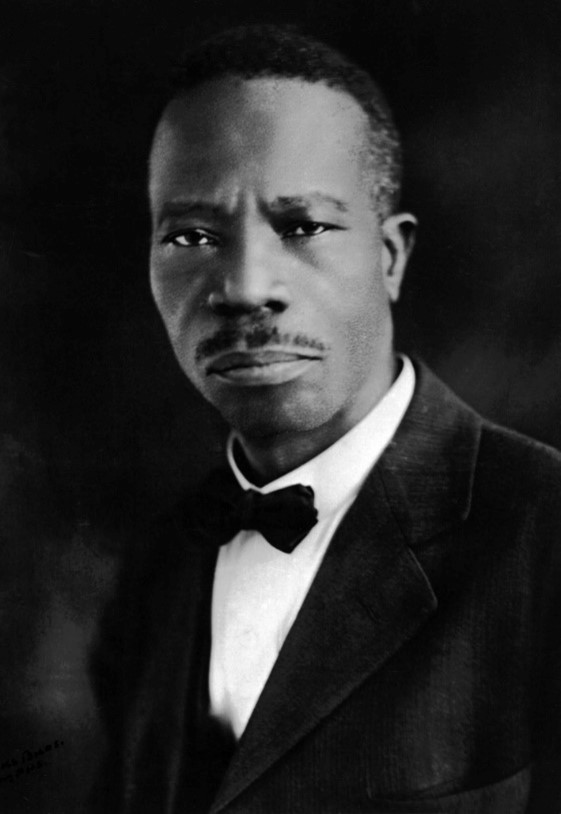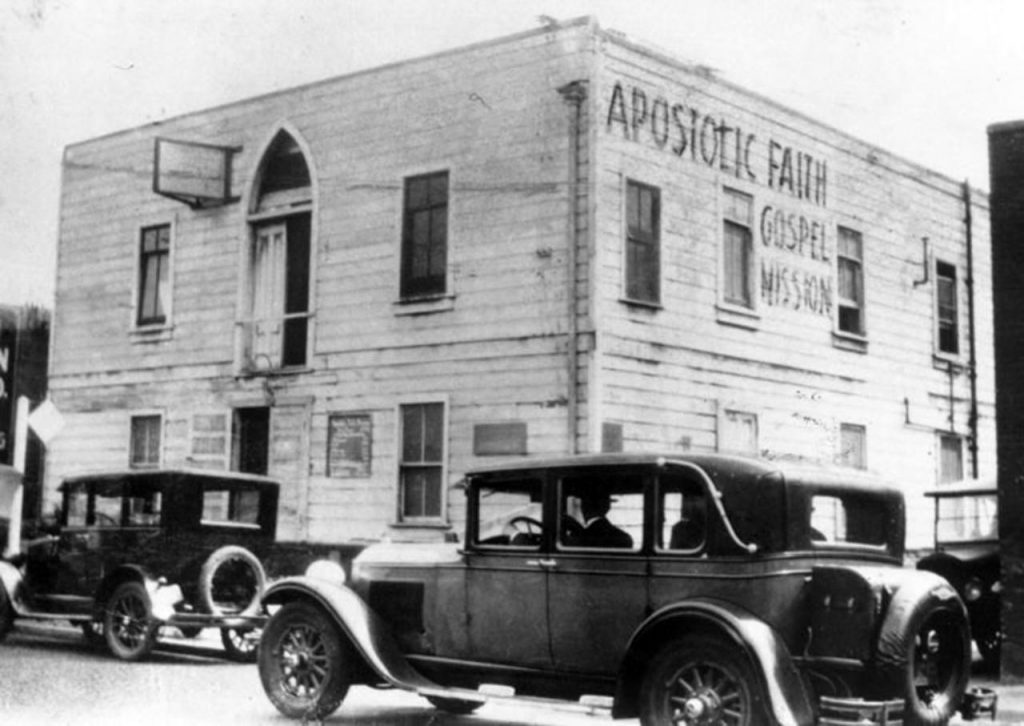
The Azusa Street Revival
The boundaries of musical expression in the African American church expanded eventually to include gospel music within the Holiness and Pentecostal denominations. Having severed his ties with the Baptist church over the theological tenets of Holiness (a post-Civil War ecumenical movement led by Methodists), Charles H. Mason (1864-1961) founded the Church of God in Christ (COGIC) in 1897 following a revelation in Little Rock, Arkansas. COGIC was a completely new Pentecostal-Holiness Christian denomination, divinely inspired, according to Mason. After testifying to being sanctified, members of the church referred to themselves as "saints," believing that they were set apart to live a daily life of Christian Holiness in words and deeds and viewed themselves as "saved and sanctified saints." While studying the doctrine of baptism in the Holy Spirit, in 1907, Mason attended the famed 1906 to 1908 Azusa Street Revival in Los Angeles led by William Seymour (1870-1922), the man generally recognized among African Americans as the founder of Pentecostalism.
Watch these videos to understand more about the importance of this religious event among Christians:

The Azusa Street Revival Documentary [ 00:00-00:00 ]

Azusa Street Revival 1906-Pentecostal History [ 00:00-00:00 ]
During his five-week stay at Azusa, Mason spoke in tongues for the first time, the experience he had sought. Upon his return, Mason testified that what he had gained at Azusa Street propelled his ministry to new heights, prompting, in particular, the rapid spread of his new denomination. Indicating the transforming power of his Azusa experience, Mason also noted, "The Spirit had taken full control of me and everything was new to me and to all the saints. The way that He did things was all new...He taught me how and what to sing, and all His songs were new" (Mason 1985, 285-95).
With this new denomination: another distinct sound emerges, as seen in "Yes, Lord". In the video, Bishop Mason himself is delivering a sermon on "sanctification." At 03:00 - 03:45, you'll notice he intones a prayer. Replete with poetic rhythms and tonal semantics, the congregants' responses punctuate each line with affirmation. Like the prayers and testimonials heard in the invisible churches Invisible churches among slaves in the United States were informal Christian groups where slaves listened to preachers that they chose without their master's knowledge. and prayer houses, we find this characteristic preserved throughout the twentieth century and into the twenty-first.

Bishop C.H. Mason - Yes Lord [ 00:00-00:00 ]
These utterances, half-spoken or half-sung, are indeed songs and cadences with a definite melodic and rhythmic structure that rises and falls at will, according to a certain subset of Christians, by the unction of the Holy Spirit. In reference to a particular sound from the Pentecostals, starting at 0:55 and through 1:10, you will hear a staple in this denomination. "Yes, yes!" The single word "yes" reveals the speakers' utter submission to the will of God.

Preaching In The Spirit - Part 1 [ 00:56-01:10 ]
Stand By Me
When the storms of life are raging
Stand by me
When the storms of life are raging
Stand by me
When the world is tossing me
Like a ship out on the sea
Thou who rulest wind and water
Stand by me
Leave It There
If the world from you withhold of its silver and its gold,
And you have to get along with meager fare,
Just remember, in His Word, how He feeds the little bird,
Take your burden to the Lord and leave it there.
Leave it there, leave it there,
Take your burden to the Lord and leave it there.
If you trust and never doubt,
He will surely bring you out,
Take your burden to the Lord and leave it there.







